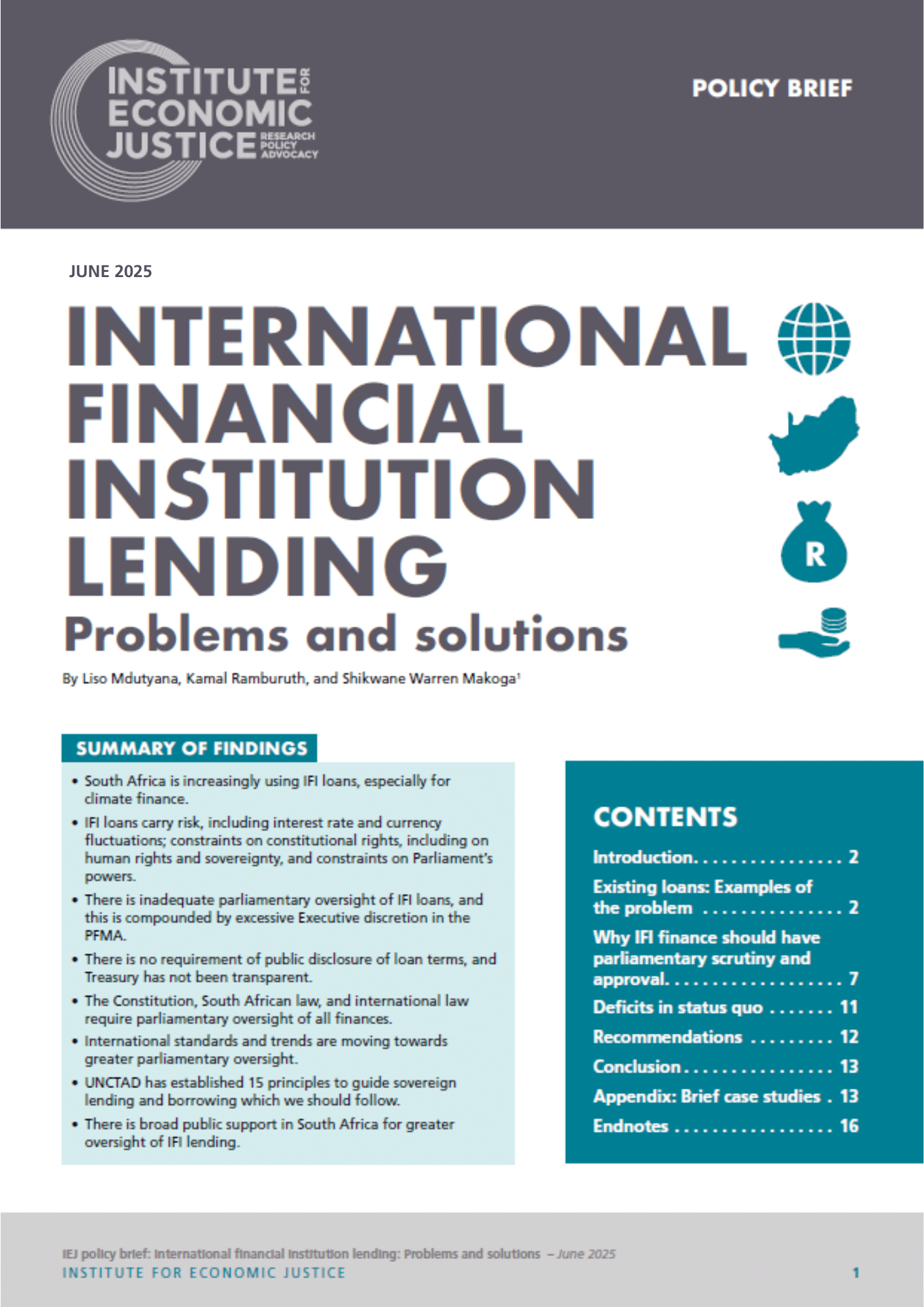Authors: Liso Mdutyana, Kamal Ramburuth, and Shikwane Warren Makoga
South Africa’s rising IFI loan risks demand stronger oversight
South Africa is increasingly relying on loans from International Financial Institutions (IFIs) to fund climate initiatives and economic recovery. However, these loans carry significant risks—currency fluctuations, high interest rates, and policy conditions that threaten sovereignty, human rights, and parliamentary authority. Currently, there is no public disclosure of loan terms, and Treasury lacks transparency, bypassing parliamentary scrutiny.
IFI loans often include hidden policy conditions, such as mandated spending cuts or privatisation measures, which can conflict with South Africa’s constitutional obligations. For example, recent IMF and World Bank loans required reductions in public sector wages and expanded private electricity markets—conditions unrelated to the loans’ stated purposes. Without proper oversight, these terms risk undermining democracy and economic stability.
Key solutions for accountability:
- Debt sustainability analysis – Assess long-term repayment risks.
- Human rights and environmental impact assessments – Ensure loans don’t harm vulnerable groups.
- Public consultation and parliamentary vote – Mandate transparency and democratic approval.
South Africa’s Constitution and international law require stronger IFI loan oversight and public finances. Countries like Kenya and Costa Rica have faced severe consequences after failing to meet IFI conditions, including credit downgrades and stricter future terms. A multilateral approach to climate finance and linking foreign loans to export-boosting projects could reduce risks.
Immediate actions needed:
- Amend the PFMA to limit unchecked Executive borrowing power.
- Establish a public loans register for full transparency.
- Empower Parliament to review and approve all IFI loans.
Without reform, South Africa risks deepening debt distress and losing policy autonomy. Strengthening oversight ensures loans serve the public interest, not foreign creditors.

